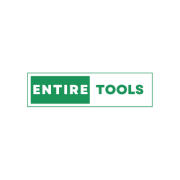In today's rapidly evolving data landscape, many organizations have traditionally turned to Tableau as their analytics platform, drawn by its comprehensive data visualization capabilities. However, the diverse needs of businesses often necessitate exploring alternatives that might offer a better fit in terms of user experience, cost efficiency, and adaptability.
This exploration into Tableau Software Competitors for 2024 isn't merely about listing other options but also how these alternatives can more closely align with your organization's specific requirements. These alternatives aim to address some of the typical limitations of Tableau, offering enhanced flexibility, more intuitive interfaces, and potentially better value for money.
The drive to seek out a Tableau alternative often stems from the desire to find a solution that better caters to a company's evolving needs. Key areas where other platforms might excel over Tableau include ease of use, real-time data processing capabilities, scalability to match business growth, more excellent customization options, and more accessible pricing structures. By excelling in these areas, an alternative platform can significantly improve an organization's ability to analyze data effectively, making insights more widely available, ensuring data is as current as possible, accommodating expanding data needs without a loss in performance, and providing more tailored analytics experiences at a lower cost.
When evaluating potential alternatives, several critical factors should guide your decision-making process. These include the platform's user-friendliness, its capacity for real-time analytics, scalability to handle growing data volumes, dashboard and report customization flexibility, and a pricing model that offers clear value. A platform that meets these criteria can offer a compelling alternative to Tableau, providing tools accessible to an organization's broader range of users, enabling quick adaptation to changes, and offering solutions that grow with your business.
Among the myriad options available, Sigma distinguishes itself as a solid contender. Sigma's approach to data analytics is characterized by focusing on making sophisticated data analysis tools accessible to users regardless of their technical expertise. Its platform is celebrated for its intuitive design, which simplifies data exploration and reduces the barrier to entry for engaging with complex data sets. Sigma supports real-time analytics, ensuring that businesses can base decisions on the most current data available. Furthermore, its scalable architecture is designed to manage data of any size efficiently, and its customizable dashboards allow for a high degree of personalization. Sigma's competitive pricing makes it attractive for businesses seeking powerful analytics capabilities without significant investment.
Other notable Tableau alternatives include Microsoft Power BI, which integrates seamlessly with Microsoft's suite of products; Qlik, renowned for its flexible data exploration capabilities; and Looker, which offers extensive customization but may present challenges for those not already using Google Cloud services.
Each alternative has its unique strengths and potential drawbacks. For example, Power BI's integration with Microsoft products is advantageous for those already within the Microsoft ecosystem but may limit its appeal for users reliant on other platforms. Qlik offers a robust analytics engine but may require a significant investment of time and resources to leverage its capabilities thoroughly. Looker's customization features are robust, yet the complexity of its modeling language, LookML, could pose a challenge for teams without dedicated data specialists.
In summary, while each alternative to Tableau brings something different, Sigma stands out for its ease of use, real-time data processing, scalability, and cost-effectiveness. For organizations looking to empower their teams with advanced data analytics and foster informed decision-making, Sigma presents a compelling solution that addresses many common challenges associated with data analytics tools.
Selecting the appropriate analytics tool is a strategic decision that hinges on understanding your organization's unique needs, budget considerations, and the level of support required. Sigma's comprehensive offerings make it an exemplary choice for those seeking to enhance their data analytics capabilities, positioning it as a leading alternative to Tableau for a broad spectrum of users.
In the quest for the right analytics platform, businesses must weigh their options carefully, considering not just the technical capabilities of the tool but also how well it aligns with their operational workflows and long-term data strategy. With its user-centric design and powerful analytics features, Sigma offers a pathway to more effective data utilization. It is a top contender for organizations transitioning from Tableau to a platform that better suits their evolving needs.


